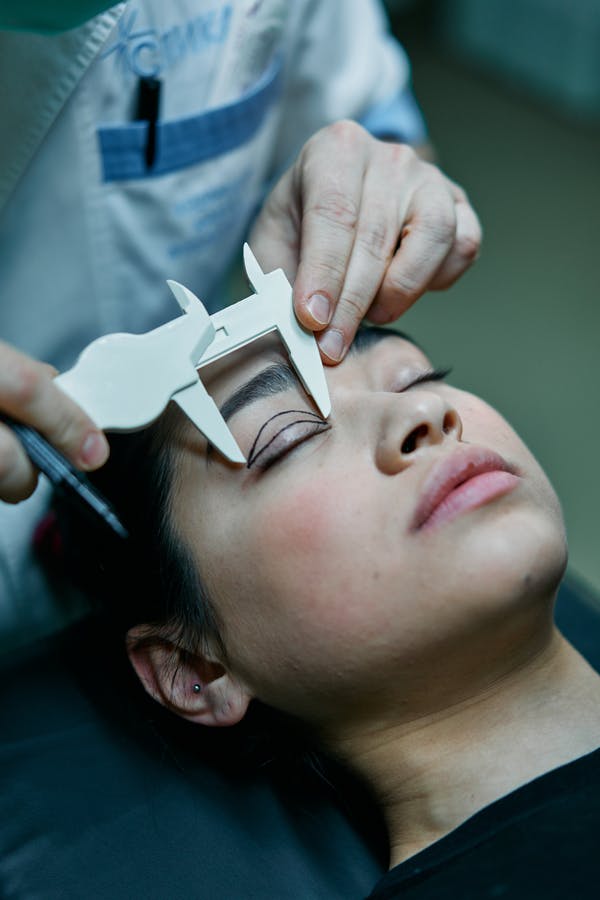Latest News
Non-Aesthetic Reasons to Contemplate Eyelid Surgery

Whenever you picture eyelid surgery, you may imagine cosmetic procedures to improve wrinkled, saggy, or droopy eyelids. To some degree, this is true as about 200,000 persons undergo eyelid surgery every year to make their eyes appear younger in the U.S. However, Scarsdale eyelid surgery could also fix other concerns, including eye health and vision issues. As a reputable oculofacial plastic & reconstructive surgeon, Robert M. Schwarcz, MD, and his expert staff provide innovative surgical solutions to eyelid issues to restore the aesthetics, health, and functionality of your eyelids. Here are three major non-aesthetic eyelid concerns that eyelid surgery could help correct:
Serious Eyelid Drooping (Ptosis)
Mild lid sagging is a fairly frequent side effect of growing older. However, occasionally, lid sagging is so extreme that it impairs your eyesight, a condition known as ptosis. Other common causes of ptosis include trauma, neurological problems, and past eyelid surgery. Sometimes, ptosis could exist at birth, also known as congenital ptosis.
Often, the best and sole option to fix this concern is with a droopy eyelids procedure. Ptosis surgery involves elevating and tightening the muscles that regulate the eyelids to operate as they should. Dr. Schwarcz performs this procedure under a local anesthetic to ensure that it is as comfortable as possible.
Ectropion and Entropion
Your eyelashes play a crucial role in keeping dust and other tiny particles out of your eyes. Typically, lashes develop in straight lines along with your lower or upper lids. However, your eyelid can sometimes grow excessively inward (entropion) or outward (entropion), causing issues that can harm your vision. For this reason, you might have issues closing your eyes entirely.
Both disorders can prompt eye irritation, heavy weeping, and light sensitivity. However, entropion has an additional risk factor. By turning inwards, your eyelashes rub against the eye’s surface. With time, this might result in ulcers or sores and severe eye infections.
To begin with, Dr. Schwarcz will administer a specific, calming eye drop to moisturize your eyes and reduce discomfort. In other circumstances, you might benefit from protective lenses. Nonetheless, more often than not, eyelid surgery is the best option for fixing the lid position so that it operates normally and does not hurt your eye.
Eyelid Cancer
Skin cancer often develops in the regions of the skin that are more exposed to sunlight. For this reason, it should come as no surprise that eyelids are quite vulnerable to skin cancer. Typical eyelid malignancies include squamous cell carcinoma and basal cell carcinoma. Fortunately, they can be corrected through surgery. Other common eyelid cancers include melanoma and cancers that afflict the oil-generating glands of your lids.
Surgery for eyelid cancer employs specialized procedures to eliminate all malignant cells while conserving as much good tissue as feasible. Based on your requirements, your doctor may suggest cryotherapy, chemotherapy, or other procedures besides surgery. Once your cancer is eliminated, Dr. Schwarcz can establish if you need eyelid reconstruction to fix the aesthetics of your eyelid.
Any unexpected symptom concerning your eyelids or eyes should be treated as soon as possible. If left addressed, even a relatively trivial condition might lead to serious difficulties with your eye health and eyesight. To discuss your concerns and determine if you are the right candidate for eyelid surgery, contact Robert M. Schwarcz, MD, through mobile or use the online scheduling tool to request an initial consultation today.
Umar Nisar was born and raised in the busy city of Abbottabad. As a journalist, Umar Nisar has contributed to many online publications including PAK Today and the Huffing Post. In regards to academics, Umar Nisar earned a degree in business from the Abbottabad UST, Havelian. Umar Nisar follows the money and covers all aspects of emerging tech here at The Hear Up.
Thanks










